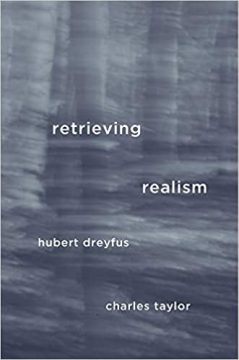by Dave Maier
 By the beginning of the 20th century, it had become clear to an influential minority of philosophers that something was badly amiss with modern philosophy. (There had been gripes of innumerable sorts since the beginning of modernity in the 17th century; but our subject today is the present.) “Modern” here means something like “Lockean and/or Cartesian,” where this means … well, it’s not immediately clear what exactly this means, nor what exactly is wrong with it, and therein lies the tale of a good deal of 20th-century philosophy. As with every broken thing, we have two choices: fix it, or throw it out and get a new one; and many philosophers have advertised their projects as doing one or the other. However, as we might expect, unclarity about the old results in corresponding unclarity about the supposedly better new. What’s the actual difference, philosophically speaking, between rehabilitation and replacement?
By the beginning of the 20th century, it had become clear to an influential minority of philosophers that something was badly amiss with modern philosophy. (There had been gripes of innumerable sorts since the beginning of modernity in the 17th century; but our subject today is the present.) “Modern” here means something like “Lockean and/or Cartesian,” where this means … well, it’s not immediately clear what exactly this means, nor what exactly is wrong with it, and therein lies the tale of a good deal of 20th-century philosophy. As with every broken thing, we have two choices: fix it, or throw it out and get a new one; and many philosophers have advertised their projects as doing one or the other. However, as we might expect, unclarity about the old results in corresponding unclarity about the supposedly better new. What’s the actual difference, philosophically speaking, between rehabilitation and replacement?
Let’s start with what two important groups of contemporary anti-modern philosophers (again, let’s leave pre-moderns out of it for today) say about what they’re doing. We can all agree that (in Wittgenstein’s words, but quoted by all and sundry) “a picture held us captive,” and even, in his continuation, that the way it did this was that “it lay in our language and language seemed to repeat it to us endlessly.” That is, it’s not simply a philosophical theory, the conclusion of an argument we have come to regard as unsound. Even in such relatively straightforward cases, of course, there may be plenty of disagreement about how to continue; but here part of our task is not simply to outline a better view, but also to diagnose and escape this characteristic feature of the old one. Such a treatment would explain how such captivity was possible, and how our very language could turn against us, as well as (naturally) what to do about it. Read more »
